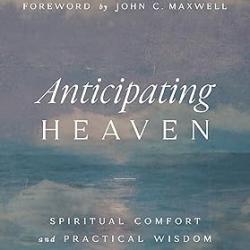In honor of the Reformation, I present a portion of the preface of J. H. Merle d’Aubigne’s History of the Reformation. (Available in the public domain here, though I do recommend having a paper copy if you can find a good used version.)
The Reformation differs essentially from the revolutions of antiquity, and from the greater part of those of modern times. In these, political changes are in question, and the object is to establish or overthrow the ascendancy of one, or it may be of many. The love of truth, of holiness, and eternity, was the simple, yet powerful, spring by which our Reformation was effected. It marks a step which human nature has taken in advance. In fact, if man, instead of pursuing only material, temporal, earthly interests, proposes to himself a higher aim, aspiring to immaterial and immortal blessings, he advances and makes progress. The Reformation is one of the brightest days of this glorious advance. It is a pledge that the new struggle, which is now being decided, will terminate in favour of truth, with a triumph still more pure, spiritual, and splendid.
Christianity and the Reformation are the two greatest revolutions on record. Unlike the different political movements of which we read, they took place not in one nation merely, but in several nations, and their effects must be felt to the end of the world.
Christianity and the Reformation are the same revolution, effected at different times, and under different circumstances. They vary in secondary features, but are identical in their primary and principal lineaments. The one is a repetition of the other. The one ended the old, the other began the new world; the middle ages lie between. The one gave birth to the other, and if, in some respects, the daughter bears marks of inferiority, she on the other hand has her own peculiar properties.

One of these is the rapidity of her action. The great revolutions which have issued in the fall of a monarchy, and the change of a whole political system, or which have thrown the human mind on a new course of development, were slowly and gradually prepared. The old power had long been undermined, and its principal buttresses had one after another disappeared. It was so on the introduction of Christianity. But the Reformation is seen, at the first glance, to present a different aspect. The Church of Rome appears, under Leo X, in all its power and glory. A monk speaks, and over the half of Europe this power and glory crumble away, thus reminding us of the words in which the Son of God announces his second advent: “As the lightning cometh out of the east, and shineth even unto the west, so shall also the coming of the Son of man be.” (Matth., xxiv, 27.)
This rapidity is inexplicable to those who see, in this great event, only a reform, and regard it as simply an act of criticism, which consisted in making a choice among doctrines, discarding some, retaining others, and arranging those retained, so as to form them into a new system.
How could a whole nation, how could several nations, have so quickly performed an operation so laborious? How could this critical examination have kindled that fire of enthusiasm which is essential to great, and, above all, to rapid revolutions? The Reformation, as its history will show, was altogether different. It was a new effusion of the life which Christianity brought into the world. It was the triumph of the greatest of doctrines, that which animates those who embrace it with the purest and strongest enthusiasm—the doctrine of faith, the doctrine of grace. Had the Reformation been what many Catholics and many Protestants in our day imagine,—had it been that negative system of negative reason, which childishly rejects whatever displeases it, and loses sight of the great ideas and great truths of Christianity, it had never passed the narrow limits of an academy, a cloister, or a cell. It had nothing in common with what is generally understood by Protestantism. Far from being a worn-out, emaciated body, it rose up like a man of might and fire.
Two considerations explain the rapidity and the extent of this revolution. The one must be sought in God, the other among men. The impulse was given by a mighty and invisible hand, and the change effected was a Divine work. This is the conclusion at which an impartial and attentive observer, who stops not at the surface, necessarily arrives. But the historian’s task is not finished; for God works by second causes. A variety of circumstances, many of them unperceived, gradually prepared men for the great transformation of the sixteenth century, and, accordingly, the human mind was ripe when the hour of its emancipation pealed.
The task of the historian is to combine these two great elements in the picture which he presents, and this has been attempted in the present history. We shall be easily understood, when we come to trace the second causes which contributed to the Reformation, but some perhaps will not understand us so well, and will even be tempted to tax us with superstition, when we attribute the accomplishment of the work to God. The idea, however, is particularly dear to us. This history, as indicated by the inscription on its title-page, places in front and over its head the simple and prolific principle, God in History. But this principle being generally neglected, and sometimes disputed, it seems necessary to expound our views with regard to it, and thereby justify the method which we have seen it proper to adopt.
History cannot, in our day, be that lifeless series of events which the greater part of previous historians deemed it sufficient to enumerate. It is now understood that in history as in man are two elements, matter and spirit. Our great historians, unable to satisfy themselves with a detail of facts, constituting only a barren chronicle, have sought for a principle of life to animate the materials of past ages.
Some have borrowed this principle from art, aiming at vivid, faithful, and graphic description, and endeavouring to make their narrative live with the life of the events themselves.
Others have applied to philosophy for the spirit which should give fruit to their labours. To facts they have united speculative views, instructive lessons, political and philosophical truths, enlivening their narrative by the language which they have made it speak, and the ideas which it has enabled them to suggest.
Both methods doubtless are good, and should be employed within certain limits. But there is another source to which, above all others, it is necessary to apply for the spirit and life of the past—I mean Religion. History should be made to live with its own proper life. God is this life. God must be acknowledged—God proclaimed—in history. The history of the world should purport to be annals of the government of the Supreme King.
I have descended into the field to which the narratives of our historians invited me, and there seen the actions of men and of states in energetic development and violent collision: of the clang of arms, I have heard more than I can tell; but no where have I been shown the majestic form of the Judge who sits umpire of the combat.
And yet in all the movements of nations, there is a living principle which emanates from God. God is present on the vast stage on which the generations of men successively appear. True! He is there a God invisible; but if the profane multitude pass carelessly by, because He is concealed, profound intellects, spirits which feel a longing for the principle of their existence, seek him with so much the more earnestness, and are not satisfied until they are prostrated before Him. And their enquiries are magnificently rewarded. For, from the heights which they must reach in order to meet with God, the history of the world, instead of exhibiting to them, as to the ignorant crowd, a confused chaos, is seen like a majestic temple, on which the invisible hand of God himself is at work, and which, from humanity, as the rock on which it is founded, is rising up to his glory.
Shall we not see God in those great phenomena, those great personages, those great states, which rise, and suddenly, so to speak, spring from the dust of the earth, giving to human life a new impulse, form, and destiny? Shall not we see Him in those great heroes who start up in society, at particular epochs, displaying an activity and a power beyond the ordinary limits of man, and around whom individuals and nations come without hesitation, and group themselves as around a higher and mysterious nature? Who flung forward into space those comets of gigantic form and fiery tail, which only appear at long intervals, shedding on the superstitious herd of mortals either plenty and gladness, or pestilence and terror? Who, if not God?… Alexander seeks his origin in the abodes of Divinity; and in the most irreligious age there is no great renown which strives not to connect itself in some way with heaven.
And do not those revolutions, which cast down dynasties, or even whole kingdoms into the dust; those huge wrecks which we fall in with in the midst of the sands; those majestic ruins which the field of humanity presents, do not those cry loud enough, God in History? Gibbon, sitting amid the wrecks of the Capitol, and contemplating the venerable ruins, acknowledges the intervention of a higher power. He sees, he feels it, and in vain would turn away from it. This spectre of a mysterious power reappears behind each ruin, and he conceives the idea of describing its influence in the history of the disorganisation, the decline and fall of this Roman power, which had subjugated the nations. This powerful hand, which a man of distinguished genius, one, however, who had not bent the knee before Jesus Christ, perceives athwart scattered fragments of the tomb of Romulus, reliefs of Marcus Aurelius, busts of Cicero and Virgil, statues of Cæsar and Augustus, trophies of Trajan, and steeds of Pompey, shall not we discover amid all ruins, and recognise as the hand of our God?
Strange! this interposition of God in human affairs, which even Pagans had recognised, men reared amid the grand ideas of Christianity treat as superstition.
The name which Grecian antiquity gave to the Sovereign God, shows us that it had received primitive revelations of this great truth of a God, the source of history, and of the life of nations. It called him Zeus, that is to say, He who gives life to all that lives, to individuals and nations. To his altars kings and subjects come to take their oaths, and from his mysterious inspirations Minos and other legislators pretend to have received their laws. Nay more, this great truth is figured by one of the most beautiful myths of Pagan antiquity. Even Mythology might teach the sages of our day. This is a fact which it may be worth while to establish; perhaps there are individuals who will oppose fewer prejudices to the lessons of Paganism than to those of Christianity. This Zeus, then, this Sovereign God, this Eternal Spirit, the principle of life, is father of Clio, the Muse of History, whose mother is Mnemosyne or Memory. Thus, according to antiquity, history unites a celestial to a terrestrial nature. She is daughter of God and man. But, alas! the short-sighted wisdom of our boasted days is far below those heights of Pagan wisdom. History has been robbed of her divine parent, and now an illegitimate child, a bold adventurer, she roams the world, not well knowing whence she comes, or whither she goes.
But this divinity of Pagan antiquity is only a dim reflection, a flickering shadow of the Eternal Jehovah. The true God whom the Hebrews worship, sees meet to imprint it on the minds of all nations that he reigns perpetually on the earth, and for this purpose gives, if I may so express it, a bodily form to this reign in the midst of Israel. A visible Theocracy behoved for once to exist on the earth, that it might incessantly recall the invisible Theocracy which will govern the world for ever.
And what lustre does not the great truth—God in History—receive from the Christian Dispensation? Who is Jesus Christ, if he be not God in History? It was the discovery of Jesus Christ that gave John Müller, the prince of modern historians, his knowledge of history. “The Gospel,” he says, “is the fulfilment of all hopes, the finishing point of all philosophy, the explanation of all revolutions, the key to all the apparent contradictions of the physical and moral world; in short, life and immortality. Ever since I knew the Saviour, I see all things clearly; with him there is no difficulty which I cannot solve.”
So speaks this great historian; and, in truth, is not the fact of God’s appearance in human nature the key-stone of the arch, the mysterious knot which binds up all the things of earth, and attaches them to heaven? There is a birth of God in the history of the world, and shall God not be in history? Jesus Christ is the true God in the history of men. The very meanness of his appearance proves it. When man wishes to erect a shade or shelter on the earth, you may expect preparations, materials, scaffolding, workmen, tools, trenches, rubbish. But God, when he is pleased to do it, takes the smallest seed, which a new-born babe could have clasped in its feeble hand, deposits it in the bosom of the earth, and, from this grain, at first imperceptible, produces the immense tree under which the families of the earth recline. To do great things by imperceptible means is the law of God.
In Jesus Christ this law receives its most magnificent fulfilment. Of Christianity, which has now taken possession of the portals of nations, which is, at this moment, reigning or wandering over all the tribes of the earth from the rising to the setting sun, and which incredulous philosophy herself is obliged to acknowledge as the spiritual and social law of the world—of this Christianity, (the greatest thing under the vault of heaven, nay, in the boundless immensity of Creation,) what was the commencement? An infant born in the smallest town of the most despised nation of the earth—an infant whose mother had not what the poorest and most wretched female in any one of our cities has, a room for birth—an infant born in a stable and laid in a manger!… There, O God, I behold and I adore Thee!
The Reformation knew this law of God, and felt she had a call to accomplish it. The idea that God is in history was often brought forward by the Reformers. In particular, we find it on one occasion expressed by Luther, under one of those grotesque and familiar, yet not undignified figures which he was fond of employing in order to be understood by the people. “The world,” said he one day at table among his friends; “the world is a vast and magnificent game at cards, consisting of emperors, kings, and princes. For several ages the pope has beaten the emperors, princes, and kings, who stooped and fell under him. Then our Lord God came and dealt the cards, taking to himself the smallest, [Luther,] and with it has beaten the pope, who beat the kings of the earth…. God used it as his ace. ‘He hath put down the mighty from their seats, and exalted them of low degree,’ says Mary.” (Luke, i, 52.)
The period whose history I am desirous to trace, is important with reference to the present time. Man, on feeling his weakness, is usually disposed to seek for aid in the institutions which he sees existing around him, or in devices, the offspring of his own imagination. The history of the Reformation shows that nothing new is done with what is old, and that if, according to our Saviour’s expression, there must be new vessels for new wine, there must also be new wine for new vessels. It directs man to God, the sole actor in history—to that divine Word—always ancient, from the eternity of the truths which it contains—always new, by the regenerating influence which it exerts, which three centuries ago purified society, restoring faith in God to those whom superstition had enfeebled; and which, at all epochs in the world’s history, is the source from which salvation proceeds.
Dr. Coyle Neal is co-host of the City of Man Podcast and an Assistant Professor of Political Science at Southwest Baptist University in Bolivar, MO. He is neither a 16th Century German monk nor a 19th Century French historian, though he does aspire to write and think like both.












